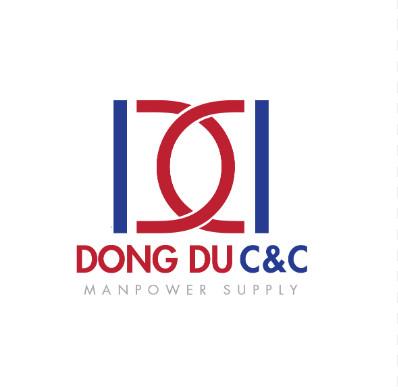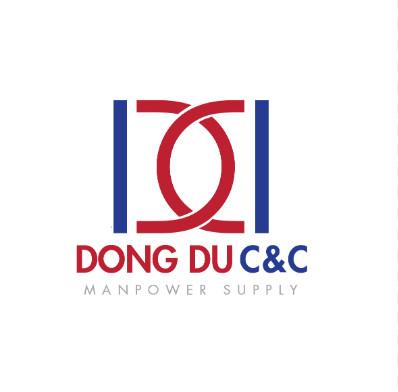Market Overview:
The smart mobility market is experiencing rapid growth, driven by government initiatives and policy support, technological advancements in connectivity and AI, and rising urbanization and changing consumer behavior. According to IMARC Group’s latest research publication, “Smart Mobility Market Size, Share, Trends and Forecast by Technology, Solution, Element, and Region, 2025-2033”, offers a comprehensive analysis of the industry, which comprises insights on the global smart mobility market share. The global market size was valued at USD 68.53 Billion in 2024. Looking forward, IMARC Group estimates the market to reach USD 233.57 Billion by 2033, exhibiting a CAGR of 13.87% from 2025-2033.
This detailed analysis primarily encompasses industry size, business trends, market share, key growth factors, and regional forecasts. The report offers a comprehensive overview and integrates research findings, market assessments, and data from different sources. It also includes pivotal market dynamics like drivers and challenges, while also highlighting growth opportunities, financial insights, technological improvements, emerging trends, and innovations. Besides this, the report provides regional market evaluation, along with a competitive landscape analysis.
Download a sample PDF of this report: https://www.imarcgroup.com/smart-mobility-market/requestsample
Our report includes:
- Market Dynamics
- Market Trends and Market Outlook
- Competitive Analysis
- Industry Segmentation
- Strategic Recommendations
Growth Factors in the Smart Mobility Market
- Government Initiatives and Policy Support
Government backing is a cornerstone driving the global smart mobility market. Various governments are rolling out substantial schemes that promote electric vehicles (EVs), integrated public transport, and digital infrastructure. For example, India's PM E-DRIVE Scheme with a budget of ₹10,900 crore supports a wide range of EVs and charging infrastructure. Other nations implement tax incentives, regulatory frameworks, and investment in EV charging stations to stimulate eco-friendly transit solutions. These programs drastically reduce investment risk and accelerate adoption rates. Moreover, cities worldwide are embedding smart mobility into wider "smart city" agendas, emphasizing sustainable urban growth, congestion reduction, and pollution control. This alignment ensures long-term growth and innovation, as policy incentives directly encourage industry players and consumers to embrace transformative mobility technologies that cut emissions and streamline urban transport systems.
- Technological Advancements in Connectivity and AI
The global smart mobility market thrives on rapid technological progress, especially in connectivity and artificial intelligence (AI). Advanced 5G networks enable real-time Vehicle-to-Everything (V2X) communication, which is fundamental for autonomous vehicles and smart traffic management systems. AI-powered predictive analytics optimize fleet maintenance, enhance driving safety, and streamline traffic flow. Leading companies are integrating AI and Internet of Things (IoT) to create connected ecosystems where vehicles, infrastructure, and users interact seamlessly. These tech breakthroughs improve efficiency and user experience while reducing accidents and emissions. The explosive expansion of software-defined vehicles, combined with smart grids for EV charging, underpins significant market growth, as consumer demand grows for feature-rich, connected mobility options.
- Rising Urbanization and Changing Consumer Behavior
Rapid urbanization globally, especially in Asia-Pacific, fuels demand for smart mobility solutions by intensifying traffic congestion and pollution challenges. Increasing middle-class populations seek flexible, sustainable, and cost-effective transit options like car-sharing, bike-sharing, and ride-hailing. Younger, tech-savvy consumers prioritize convenience and technology integration, driving the shift from individual vehicle ownership to Mobility-as-a-Service (MaaS) models. Urban areas are leveraging digital platforms that integrate multiple forms of transport with unified payment systems, enhancing commuter experiences. This behavioral shift, coupled with urban planning strategies aimed at reducing fossil fuel dependency, consistently propels smart mobility adoption worldwide, translating into substantial market expansion.
Key Trends in the Smart Mobility Market
- Expansion of Autonomous Public Transport
A notable trend in smart mobility is the growing adoption of autonomous shuttles, buses, and self-driving taxis in major cities globally. Pilot projects for driverless public transport are gaining traction, promising to reduce operational costs while enhancing safety and accessibility. Cities like San Francisco and Singapore are testing autonomous fleets integrated with existing transport networks. The technology relies heavily on AI, sensors, and V2X communications to navigate complex urban environments. Autonomous public transit contributes to congestion mitigation and lowers emissions by optimizing route efficiency and vehicle utilization. Increasing investments by companies such as Lyft in autonomous ride-sharing bolster this trend, signaling a paradigm shift toward safer, more sustainable, and tech-enabled urban mobility.
- Emergence of E-Mobility Sharing Solutions
E-mobility sharing solutions like e-scooters, e-bikes, and electric car-sharing are rapidly expanding as convenient last-mile transport options. These solutions reduce urban carbon footprints by supplementing public transit and discouraging private car use. Cities in Europe and North America report spikes in micro-mobility usage, supported by smartphone apps that simplify renting and payment. Shared electric mobility helps ease the first- and last-mile connectivity problem, especially in dense urban zones. Companies are also innovating with battery-swapping stations and fast-charging networks to improve operational efficiency. This trend embodies a shift toward more flexible, sustainable, and user-centric urban travel, reshaping how people navigate city spaces.
- Integration of AI-Powered Traffic Management
AI-driven traffic management systems are reshaping urban mobility by dynamically controlling traffic signals, monitoring congestion in real time, and adjusting routes to prevent bottlenecks. Cities implementing these technologies report significant reductions in commute times and vehicular emissions. For instance, smart traffic lights analyze traffic patterns continuously, optimizing flows across intersections to reduce stop-and-go driving. Such systems are powered by IoT sensors and big data analytics, enabling municipalities to address traffic challenges proactively. Beyond efficiency, these technologies enhance commuter safety and facilitate emergency response. As governments increase investments in AI infrastructure, this trend is expected to accelerate, enabling smarter, less congested, and cleaner urban transport environments.
Leading Companies Operating in the Smart Mobility Industry:
- Cisco Systems Inc.
- Excelfore Corporation
- Ford Motor Company
- Innoviz Technologies Ltd
- QuaLiX Information System LLP
- Robert Bosch GmbH
- Siemens AG
- Thales Group
- TomTom N.V.
- Toyota Motor Corporation
Smart Mobility Market Report Segmentation:
By Technology:
- 3G and 4G
- Wi-Fi
- Global Positioning System (GPS)
- Radio Frequency Identification (RFID)
- Embedded System
- Others
In the smart mobility market, RFID holds the majority share due to its effectiveness in automated tracking and management of vehicles, enhancing operational efficiency and supporting applications like toll collection and smart parking.
By Solution:
- Traffic Management
- Parking Management
- Mobility Management
- Others
Traffic management leads the market with a 31.2% share, driven by the need for efficient urban mobility solutions to address congestion and safety concerns, utilizing technologies like IoT and AI for real-time traffic control and optimization.
By Element:
- Bike Commuting
- Car Sharing
- Ride Sharing
Ride sharing captures the largest market share at 36.8% in the smart mobility sector, favored for its affordability and convenience, leveraging technologies like GPS and mobile apps to enhance user experience and promote sustainability.
Regional Insights:
- North America (United States, Canada)
- Asia Pacific (China, Japan, India, South Korea, Australia, Indonesia, Others)
- Europe (Germany, France, United Kingdom, Italy, Spain, Russia, Others)
- Latin America (Brazil, Mexico, Others)
- Middle East and Africa
North America dominates the smart mobility market with a 40.5% share, supported by a strong technological ecosystem, early adoption of EVs and AVs, and significant investments in smart city initiatives and transportation infrastructure.
Note: If you require specific details, data, or insights that are not currently included in the scope of this report, we are happy to accommodate your request. As part of our customization service, we will gather and provide the additional information you need, tailored to your specific requirements. Please let us know your exact needs, and we will ensure the report is updated accordingly to meet your expectations.
About Us:
IMARC Group is a global management consulting firm that helps the world’s most ambitious changemakers to create a lasting impact. The company provide a comprehensive suite of market entry and expansion services. IMARC offerings include thorough market assessment, feasibility studies, company incorporation assistance, factory setup support, regulatory approvals and licensing navigation, branding, marketing and sales strategies, competitive landscape and benchmarking analyses, pricing and cost research, and procurement research.
Contact Us:
IMARC Group
134 N 4th St. Brooklyn, NY 11249, USA
Email: sales@imarcgroup.com
Tel No:(D) +91 120 433 0800
United States: +1-201971-6302



